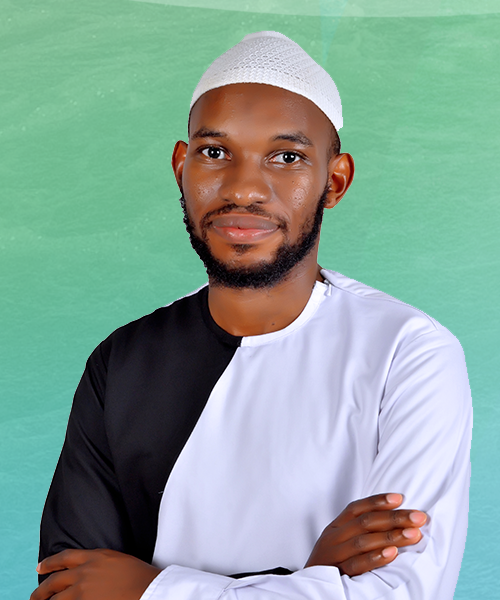
Regional Operations Manager
Abubakar Batte
Batte Abubakar is a highly skilled and dedicated Civil Engineering graduate with extensive expertise in GIS and a proven track record in environmental engineering projects, poised to drive impactful changes in water-related environments.
Eager to harness his strong background in civil and environmental engineering, Abubakar is focused on leveraging his technical and leadership skills to foster sustainable community development and environmental conservation. His commitment to practical and innovative solutions in environmental sustainability makes him an excellent candidate for roles requiring adaptability and a deep understanding of civil and environmental dynamics.
- Experienced in conducting geo-spatial analysis and field data collection for sanitation and waste management projects in urban and rural settings.
- Led initiatives that raised significant funds for community development projects, including educational facilities and sanitation infrastructure.
- Demonstrated capability in scientific research with a focus on public health improvements through environmental engineering solutions.
- Skilled in laboratory testing and analysis, proficient in recommending material mixes to meet project specifications.
- Strong leadership experience, having represented a major university in international councils and led a significant scholar community in various initiatives.
- Committed to continuous personal and professional development, actively engaging in volunteer activities and professional training programs.
Abubakar, a graduate of Makerere University with a Bachelor of Science in Civil and Environmental Engineering and international experience through an EPP Fellowship at Eawag in Switzerland, has established himself as a proficient professional in the field of environmental engineering. His expertise is particularly marked by his adept use of GIS technologies to analyze and solve complex environmental challenges. Throughout his academic and professional journey, Abubakar has engaged in several high-impact projects that demonstrate his ability to apply technical knowledge to real-world environmental issues.
Notably, Abubakar's involvement in a partnership program with a leading Swiss research institute allowed him to conduct in-depth geo-spatial analyses on critical interlinkages between water supply, sanitation, and waste management. His role in field data collection and subsequent research initiatives across various Ugandan locales underscores his hands-on approach and commitment to enhancing public health through improved environmental practices.
Beyond his technical skills, Abubakar is a natural leader. He spearheaded numerous fundraising and community development initiatives, significantly impacting educational and sanitary conditions in underserved communities. His leadership extended to academic representation, where he effectively voiced and addressed the needs of his peers at both local and international forums.
Abubakar contributed to the Ethiopia 2025 WASH Survey by migrating the Institutional WASH Insecurity Experiences (INWISE) survey into KoboToolbox, enabling real-time digital data collection. His proficiency in digital survey tools and his commitment to improving water, sanitation, and hygiene practices have enhanced the accuracy and immediacy of data collection, supporting informed decision-making and sustainable project outcomes.
Abubakar's voluntary engagements further illustrate his dedication to societal improvement. Whether guiding entrepreneurs on financial management or supporting educational opportunities for underprivileged children, his efforts are rooted in a deep-seated belief in sustainable community growth and empowerment.
In summary, Abubakar's blend of technical acumen, leadership prowess, and community-oriented initiatives make him an outstanding candidate for positions that demand both environmental engineering expertise and a genuine commitment to societal progress.

Featured Projects

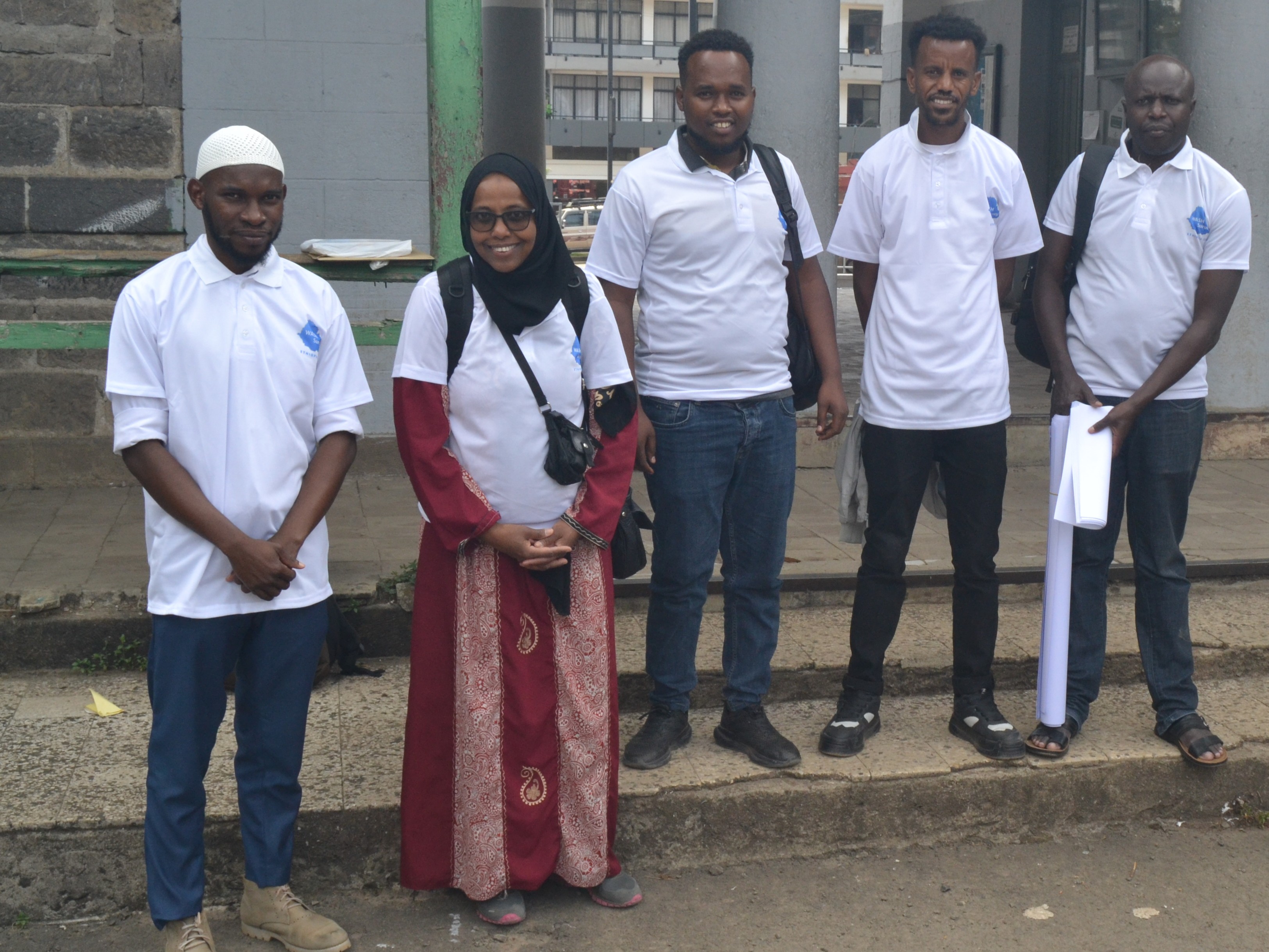
Menelik II Secondary School
Project 12 launched at Menelik II School, Ethiopia’s first modern school, collecting WASH data to improve hygiene, water, and sanitation for over 2,260 students.
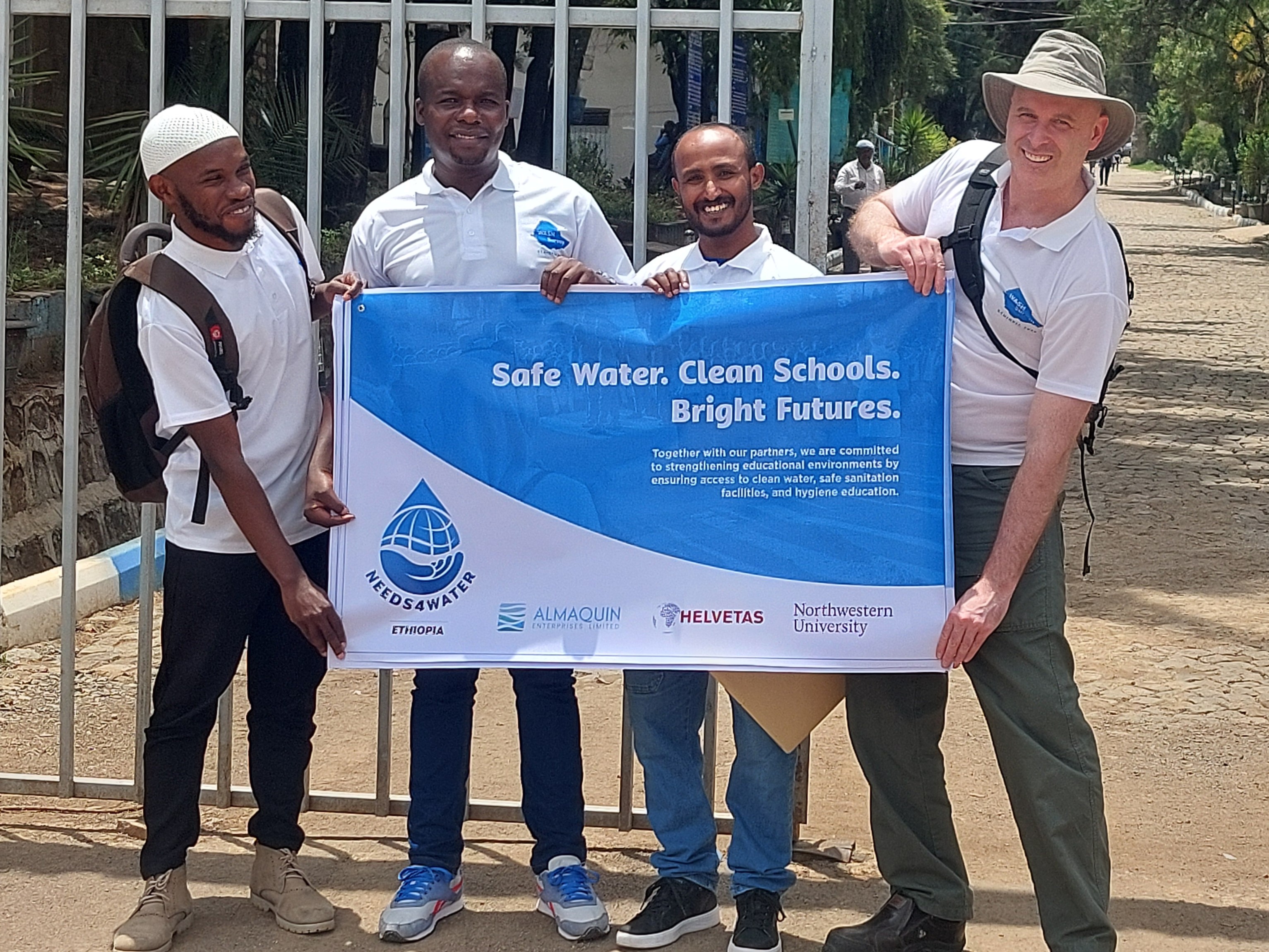
Kokebe Tsibah Secondary and Preparatory School
At Kokebe Tsibah School, Needs4Water gathered student insights and tested water quality to guide scalable WASH solutions as part of Ethiopia’s nationwide Project 12 survey.

Yeka Kindergarten and Elementary School
Empowering students at Yeka School, Addis Ababa, through English tutoring and WASH education, with community collaboration and survey integration during the Ethiopia 2025 WASH Survey.
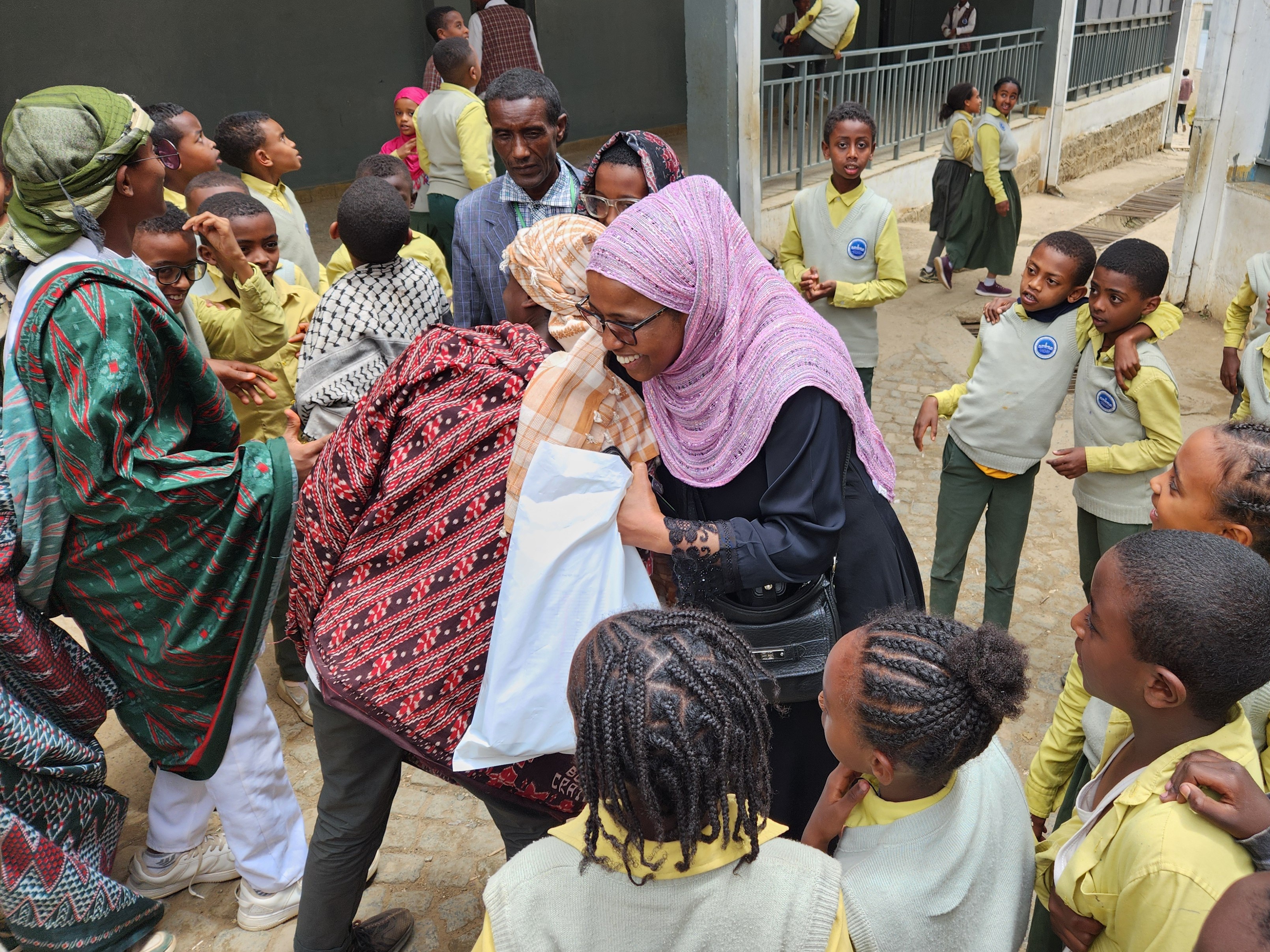
Eyerusalem Primary School
Eyerusalem Primary School supported Project 12 with WASH data collection and water testing, guiding improvements for nearly 1,500 students and contributing to national school sanitation insights.
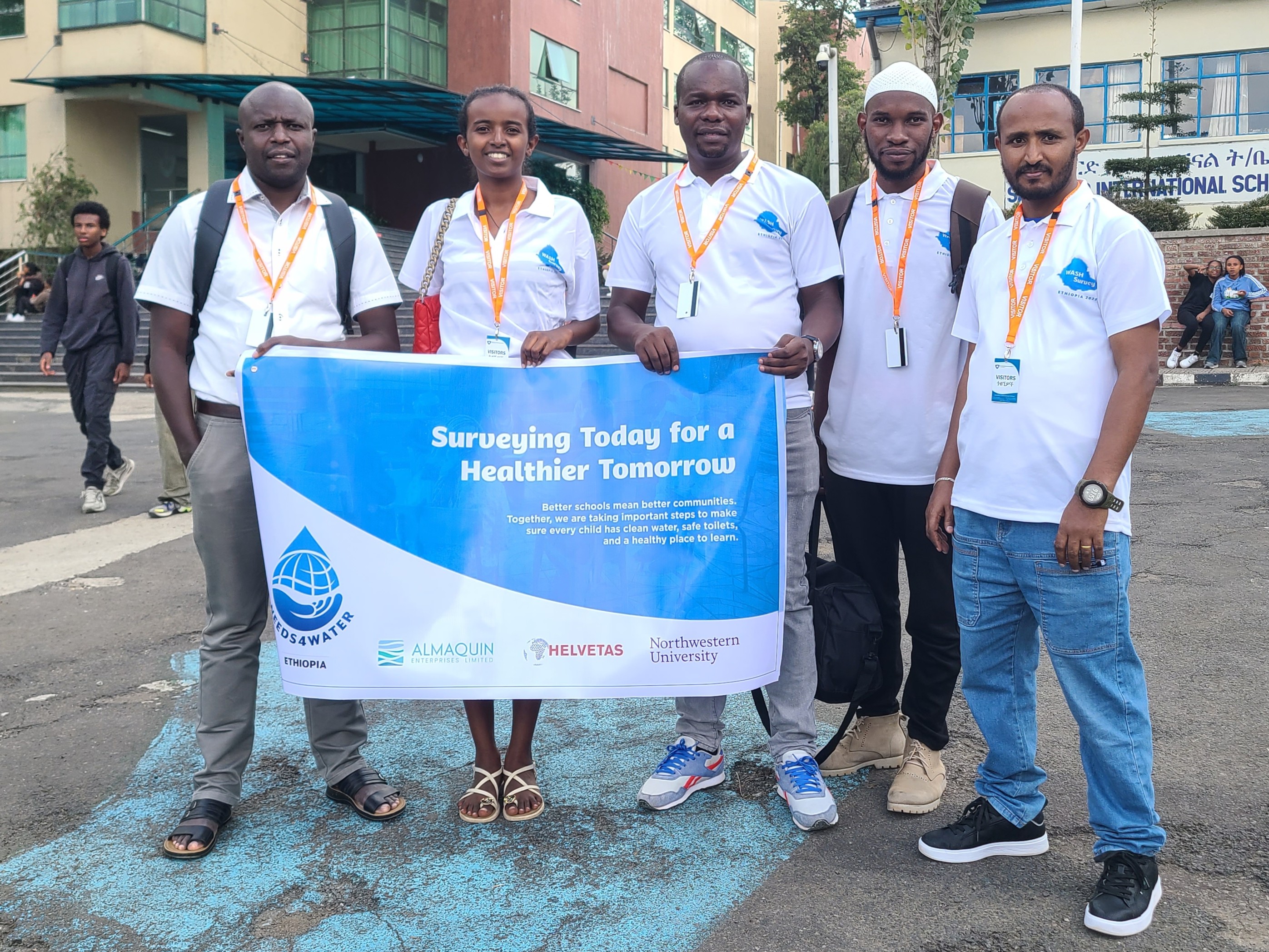
Sandford International School
At Sandford International School, Project 12 gathered WASH data and conducted water testing with support from Dr. Tsion, helping enhance safety for 1,027 students and 304 staff.
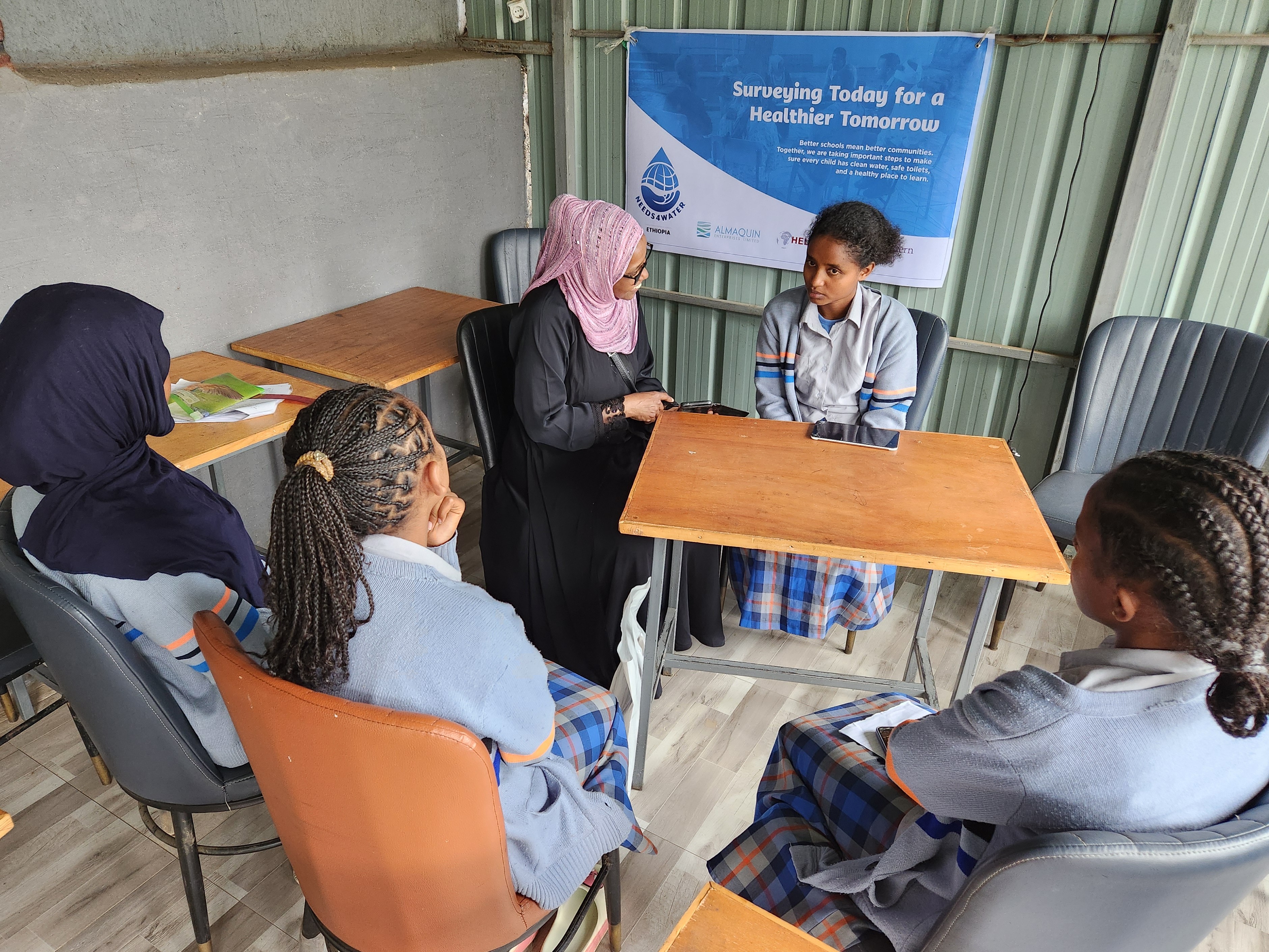
Etege Menen Girls Boarding Middle & Secondary School
At Etege Menen Girls Boarding School, Project 12 evaluated WASH conditions in a unique boarding setting with on-site garden and livestock, serving 617 students and 73 staff since its founding in 1931.
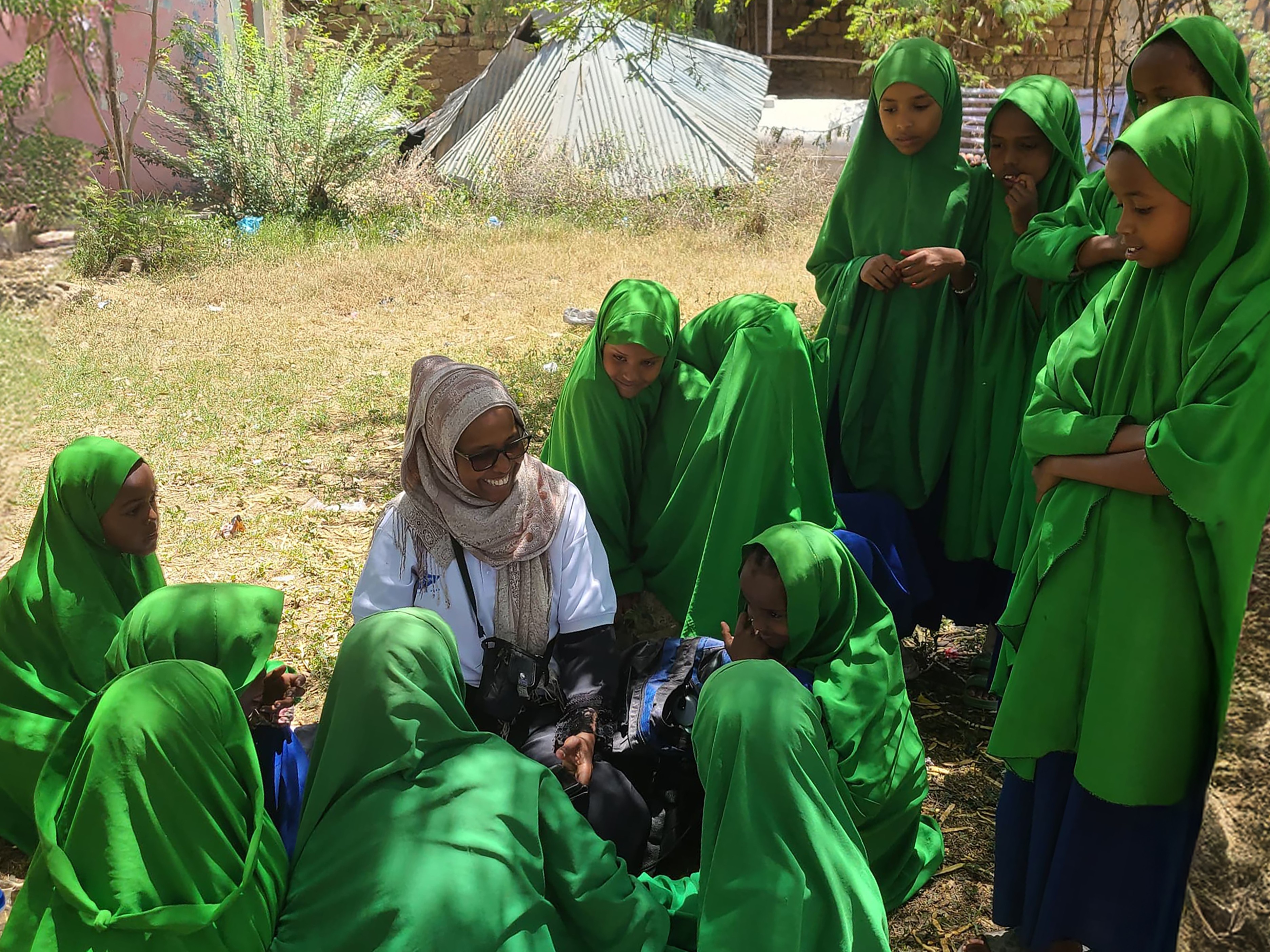
Hussein Gire Primary School
In Jijiga, Hussein Gire Primary faces water supply gaps and hygiene risks. Project 12 revealed contamination in containers, limited sanitation, and efforts by staff and students to cope.
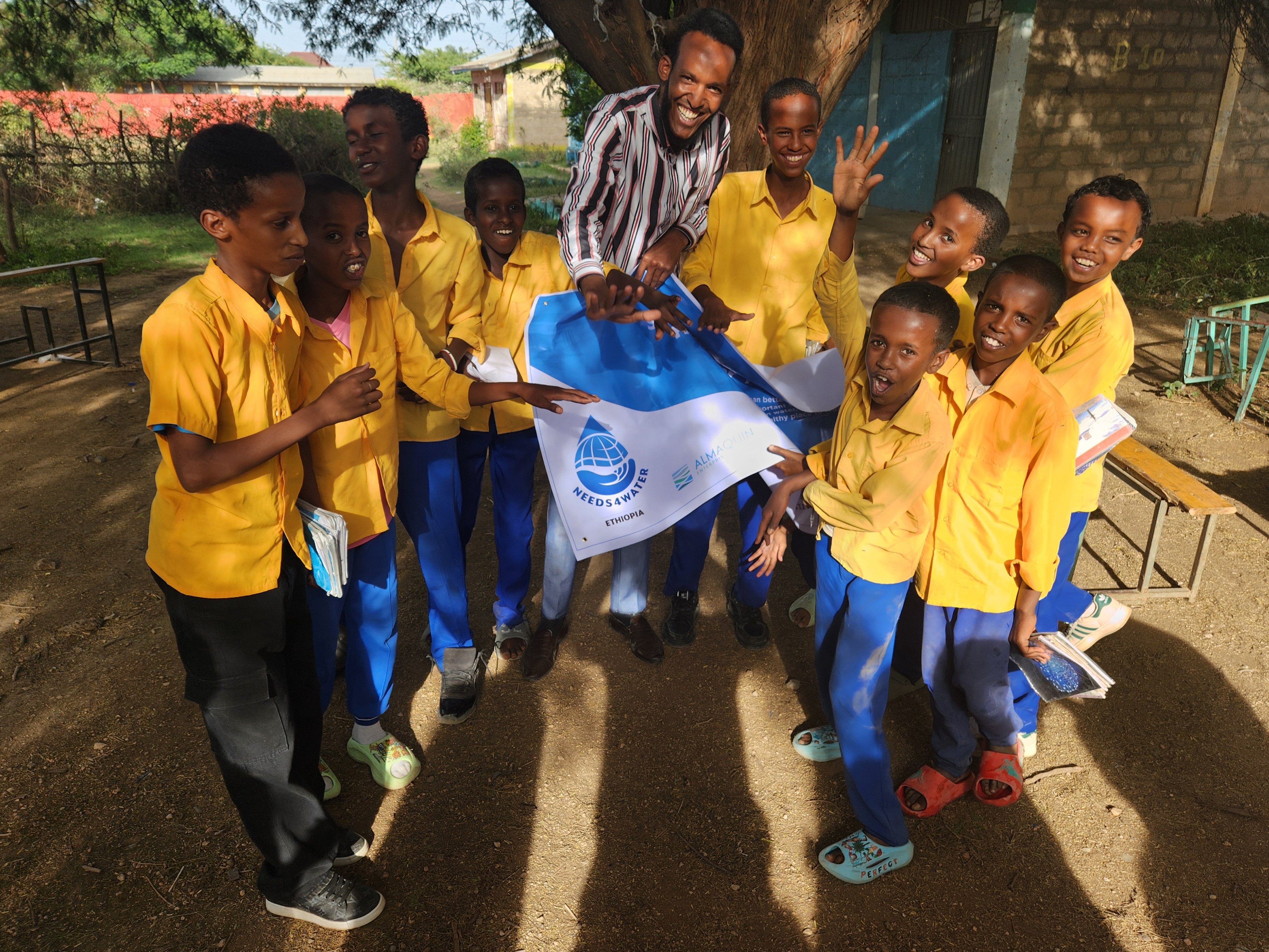
Ahmed Guray Secondary School
Without piped water, Ahmed Guray School relies on a rain-fed cistern and trucking. Project 12 found contamination, poor sanitation, and disruptions to learning due to inadequate water supply.
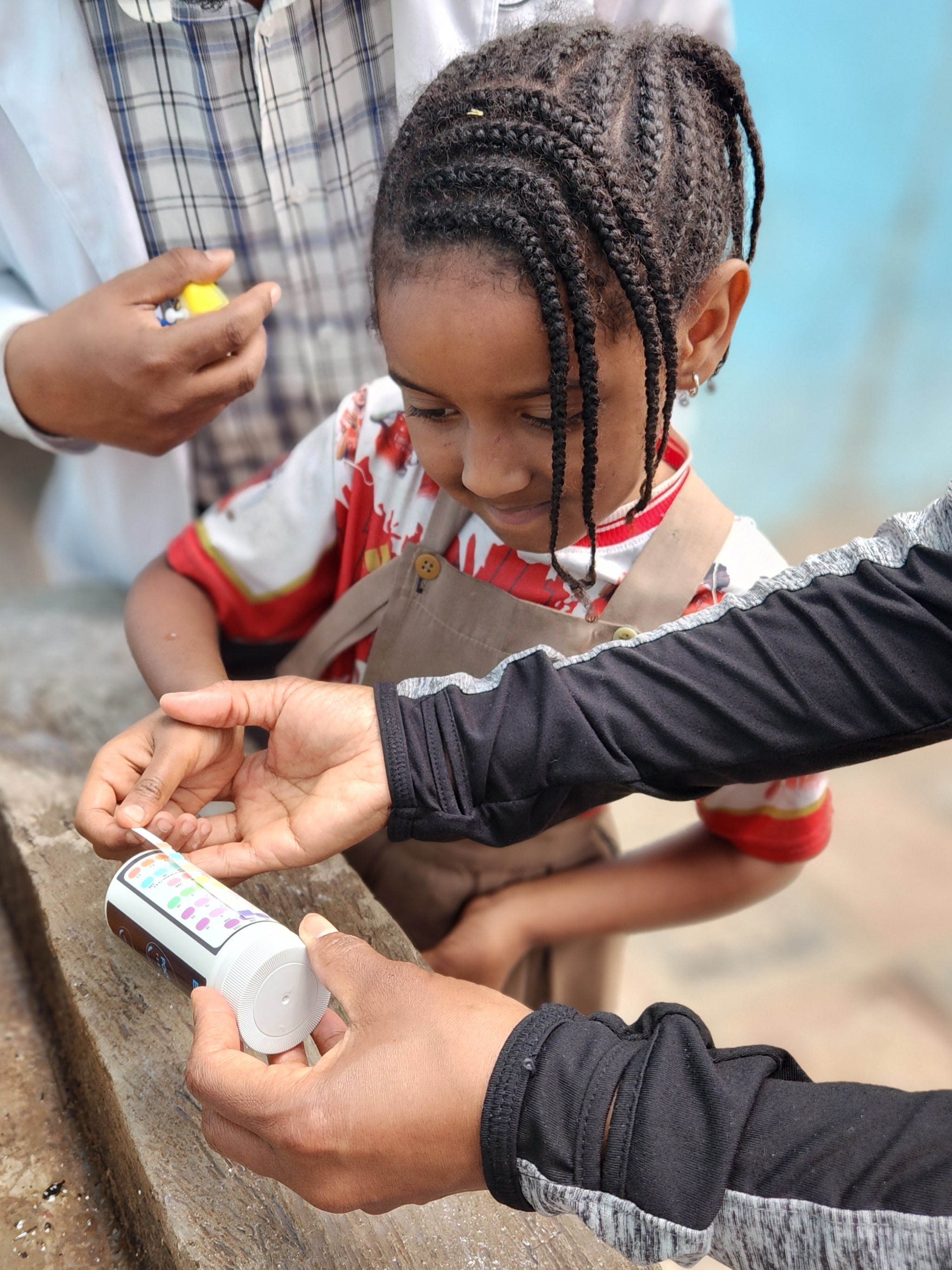
Time's Choice Academy
Frequent pump outages limit water access at Time’s Choice Academy, affecting meals and attendance. Project 12 found hygiene efforts in place but critical gaps in sanitation and reliability.
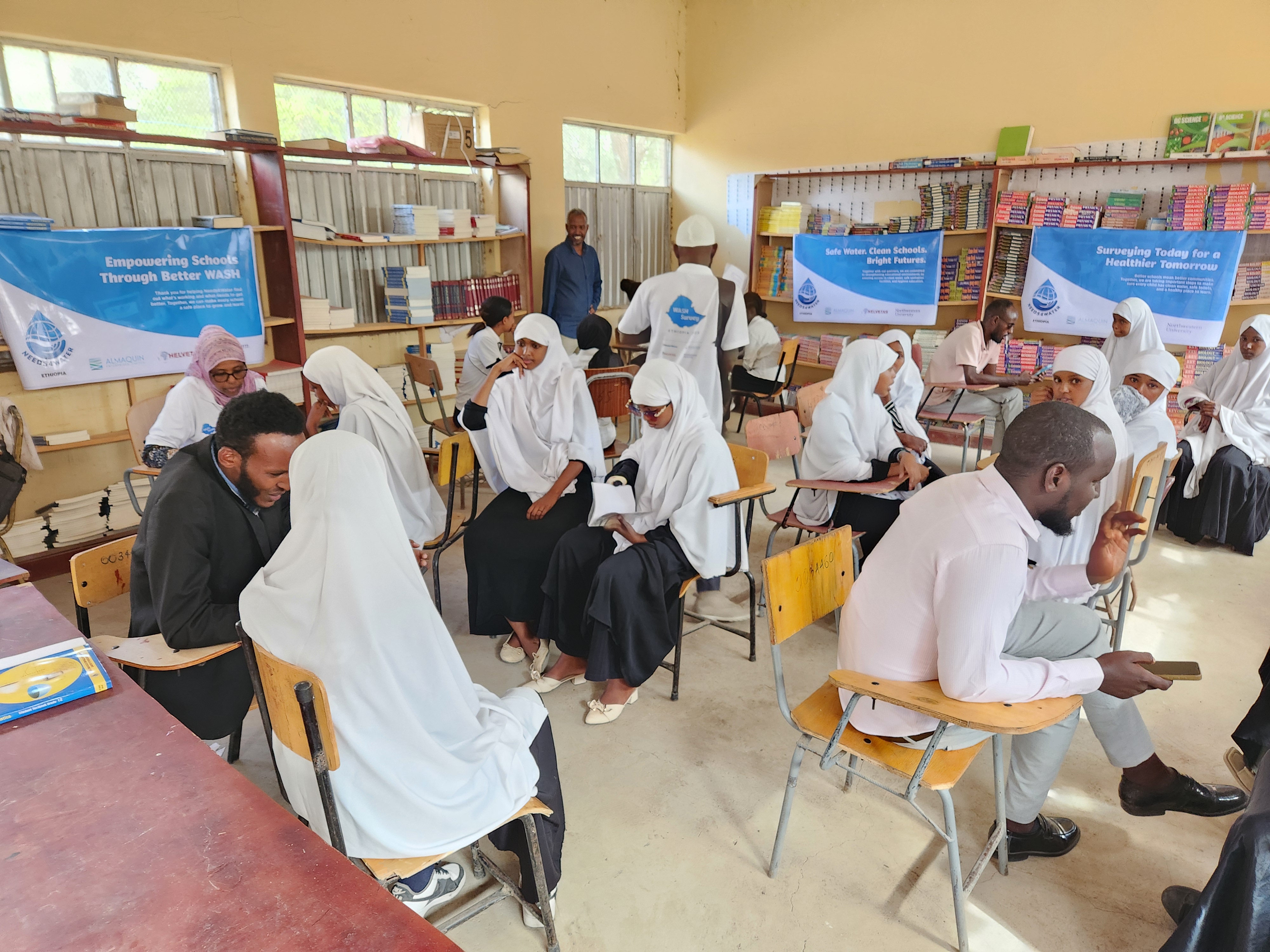
Sheikh Abdisalan Secondary School
At Sheikh Abdisalan, Project 12 found unsafe latrines and poor waste practices impacting 3,990 students, with girls pairing up for safety and water stored in jerry cans from the city supply.



